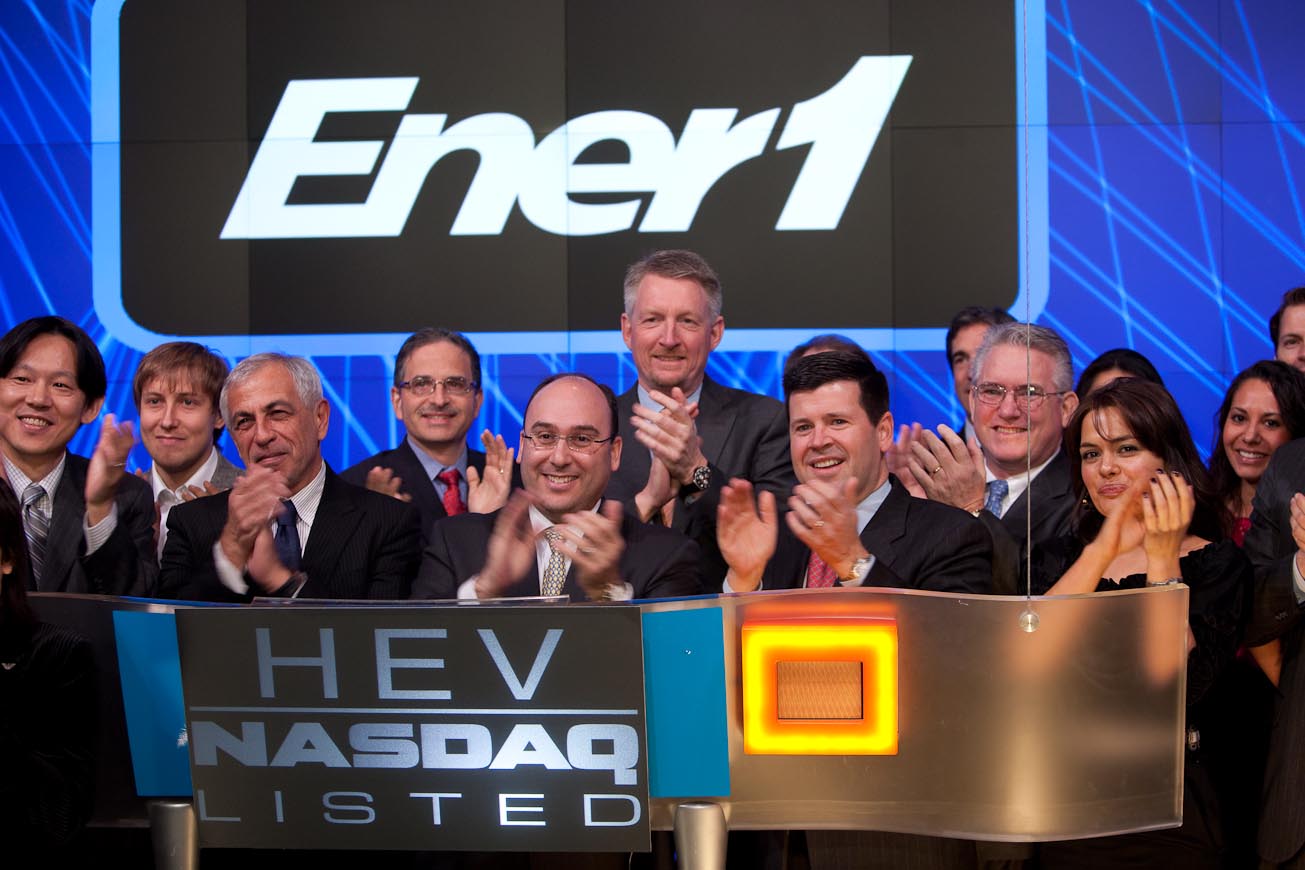
| Monday, February 6, 2012 | Archives | Advertise | Online Buyer's Guide | FLEETSolutions |
Ener1, Battery Maker, Seeks Chapter 11 Bankruptcy Protection
 Ener1 Inc., which received a $118 million U.S. Energy Department grant to make electric-car batteries, filed for Chapter 11 bankruptcy protection on January 26 after defaulting on bond debt amid heavy competition from Asia. Ener1 Inc., which received a $118 million U.S. Energy Department grant to make electric-car batteries, filed for Chapter 11 bankruptcy protection on January 26 after defaulting on bond debt amid heavy competition from Asia.The company listed assets of $73.9 million and debt of $90.5 million as of December 31 in court papers filed in U.S. Bankruptcy Court in Manhattan. Ener1 has been affected by competing battery developers in China and Korea, "which generally have a lower cost manufacturing base" and lower labor and raw material costs, interim Chief Executive Officer Alex Sorokin said in the petition. Ener1 makes lithium-ion batteries for plug-in electric cars, which had been scrutinized by federal auto-safety officials after a General Motors Co. Chevrolet Volt caught fire, people familiar with the probe said in November. A two-month federal safety investigation cleared the Volt of danger, and GM is beginning a marketing effort to tout the car as safe and innovative. Under President Barack Obama’s economic stimulus package, the Energy Department awarded grants in an attempt to create a U.S. electric-car industry. Ener1 subsidiary EnerDel was the grant recipient and has received about $55 million of its grant so far. A spokesman for the Energy Department, Jen Stutsman, said the department would provide comment soon. Ener1’s grant application received bipartisan support from Indiana lawmakers, and the company got a $6.5 million Energy Department advanced-battery grant and a $4 million Defense Department research and development contract under the George W. Bush administration. Ener1’s bankruptcy follows the failure of at least two U.S. government-backed renewable energy companies. Solar panel maker Solyndra LLC and energy storage company Beacon Power Corp. filed for bankruptcy after receiving government loan guarantees. Beacon, based in Tyngsboro, MA, sought Chapter 11 protection on October 30 in Delaware, listing assets of $72 million and debt totaling $47 million, including $39.1 million owed on a government-guaranteed loan. Beacon built a $69 million facility with twenty megawatts of balancing capacity in Stephentown, NY, funded mostly by a U.S. Energy Department loan. The company is set to auction assets next month. Solyndra, which received $535 million in government loan guarantees, is proceeding with court-approved auctions of its core assets after failing to draw any offers to continue operating the company. Solyndra, based in Fremont, CA, sought Chapter 11 protection September 6. Two days later its offices were raided by the Federal Bureau of Investigation, and it faces a probe by Republicans in Congress over the federal loan guarantee it used to build a $733 million factory. The solar-panel maker listed about $854.1 million in assets and about $867.1 million in debt in court papers filed October 31. The Republicans have also questioned whether political favoritism may have played a role in awarding the government loan guarantee due to Solyndra’s ties to an Obama fundraiser. "Payoffs on these public investments don’t always come right away," Obama said in his State of the Union speech on January 24. "Some technologies don’t pan out; some companies fail. But I will not walk away from the promise of clean energy," adding he would not "cede the wind or solar or battery industry to China or Germany because we refuse to make the same commitment here." Among Ener1’s largest unsecured creditors are Liberty Harbor Special Investments of New York, holders of $39.4 million in senior notes; Itochu Corp. of Tokyo, holders of $10.2 million in senior convertible notes; and Goldman Sachs Palmetto State Credit Union of Florida, holders of $5.63 million in senior notes, court papers show. Ener1 expects to complete the restructuring process in about forty-five days. The company filed a reorganization plan, which was accepted by the required majorities of creditors, and supporting documents with its Chapter 11 petition that may infuse as much as $81 million of new capital, reduce existing debt, and allow continued operations of Ener1’s subsidiaries, court papers show. None of Ener1’s foreign or domestic subsidiaries sought protection. The company said the claims of all unsecured creditors will be paid in full under the plan. All existing common stock will be canceled. New preferred stock will be issued to the provider of post-petition and exit funding. Holders of long-term debt will exchange their claims for cash, a new term loan, and new common stock, court papers show. |
 |
NAFA Fleet Management Association 125 Village Blvd., Suite 200 Princeton, NJ 08540 Telephone: 609.720.0882 Fax: 609.452.8004 |








